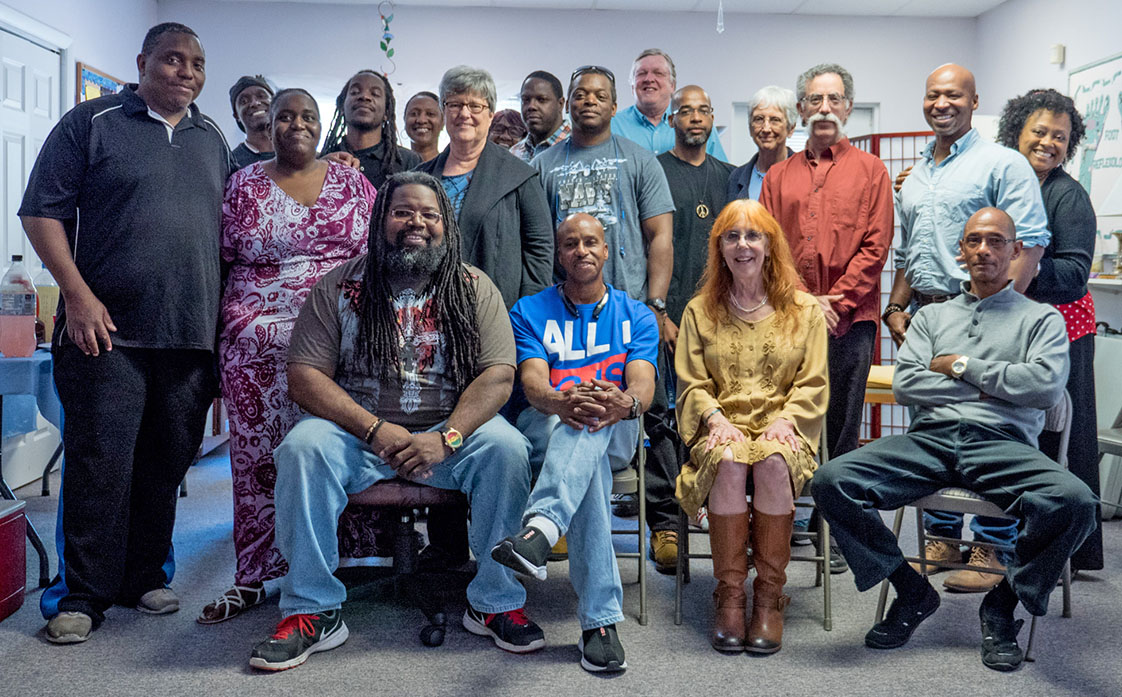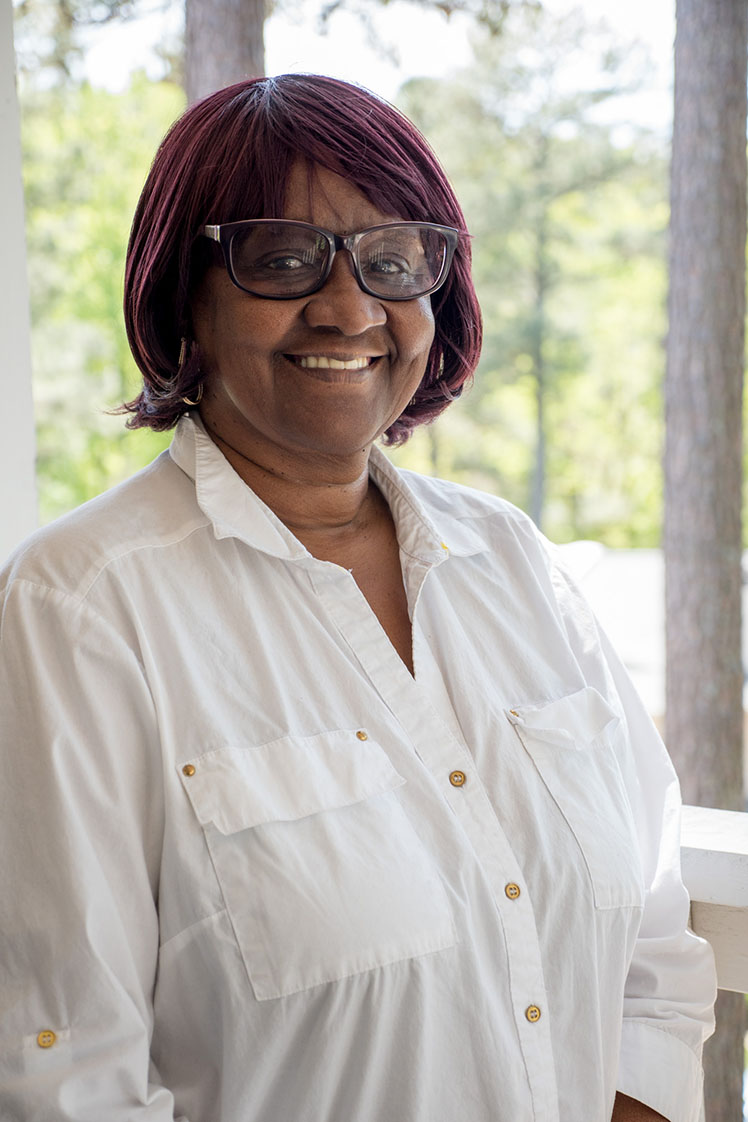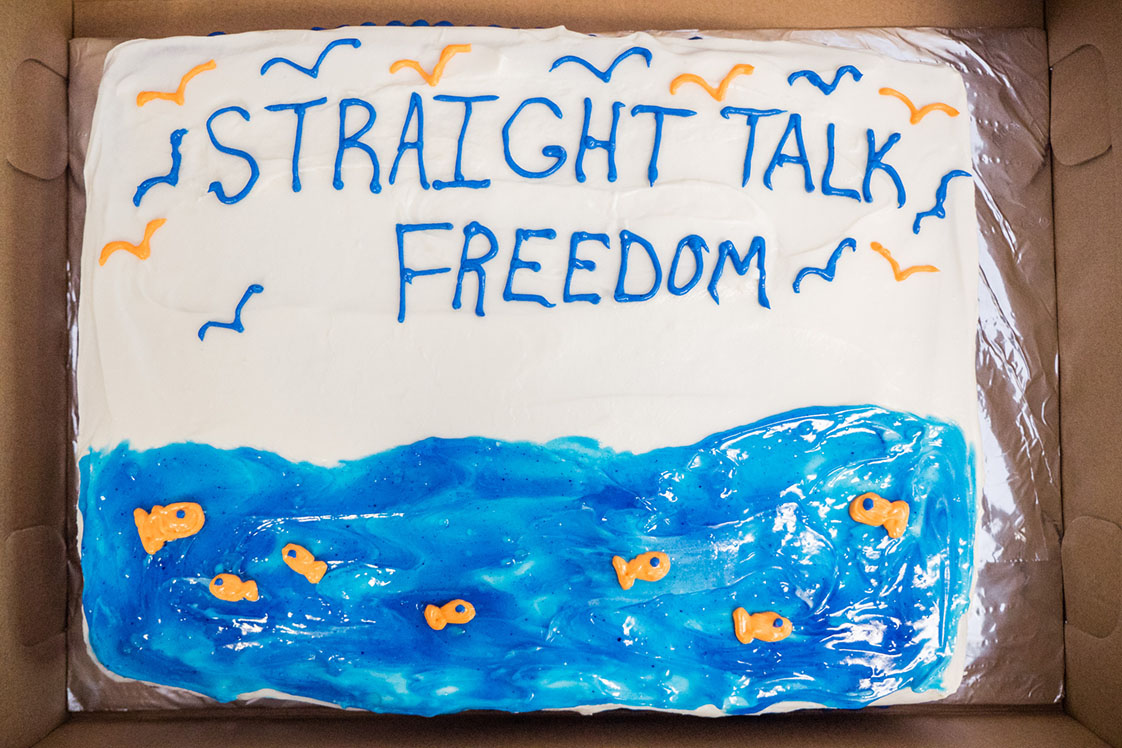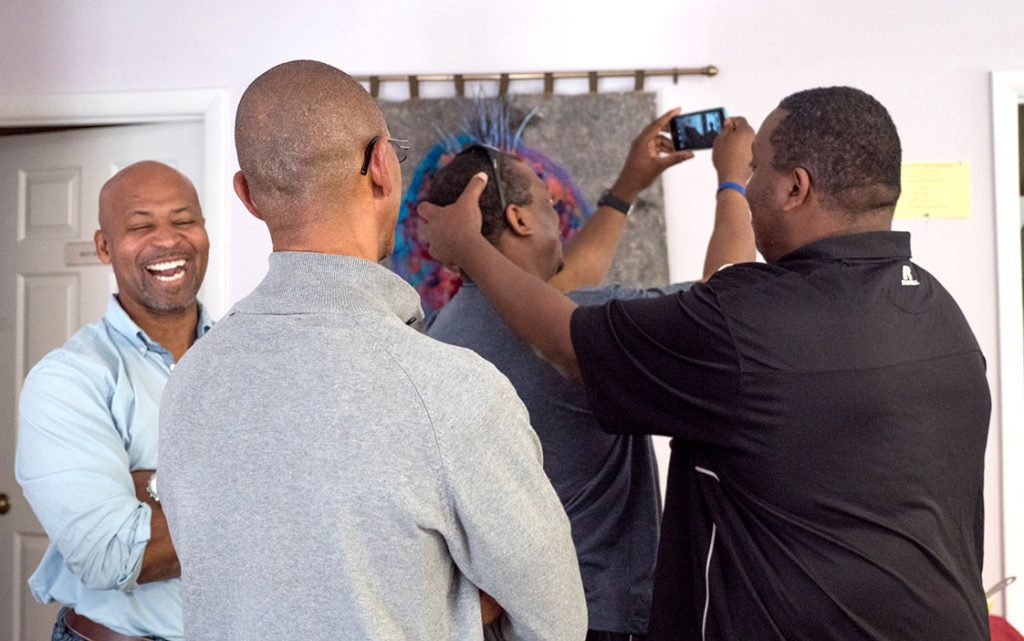
Members, friends and family pose during a Straight Talk potluck dinner. They greeted each other, talked about life, and shared expectations for the future of Straight Talk. (Staff photo by Cole McCauley).
Prison – a place where everyone has on the same outfit, schedules are followed to the second and people live every day not knowing exactly when they’ll get out. But even if somebody is returned to freedom, getting incorporated into society after years behind bars isn’t exactly easy.
People who have been granted freedom face a range of issues. Getting employment can be nearly impossible. Learning how to use a computer or cell phone can be a challenge.

“It’s all about making a difference,” says Bessie Elmore. Posing on her back porch in Durham, she followed her son William to Orange County when he was transferred to Orange Country Correctional Facility. Now he’s been released and they are staying in the area. (Staff photo by Cole McCauley).
That’s why Bessie Elmore decided to start Straight Talk Support Group and Resource Center in Durham.
Bessie Elmore’s son, William Elmore, was sentenced to life in prison in 1991. He was 21 years old. “We started talking about re-entry (into society) the moment he stepped into prison,” she said. “We had the assumption that he would get out this year or the next.”
In 2011, Bessie Elmore’s assumption was becoming a reality. William Elmore was enrolled in a Mutual Agreement Parole Program, which is designed to help people in prison be incorporated back into society.
“Up until that point I had been thinking about starting something, but I wasn’t sure what to start,” Bessie Elmore said. “Then I had the idea for a support group.”
Elmore said: “The person who is incarcerated has a hard time understanding the burden they put on the family. The family also has a hard time understanding the struggle of the person in prison. One of our main goals is to educate both sides.”
Elmore started Straight Talk Support Group in March of 2013 – originally created to inform both free and incarcerated people about the effects of prison and offer them an open dialogue.
Chris Williams understands the necessity of Straight Talk Support Group.
Williams was incarcerated in 1994 and released in 2015. He spent some of his time behind bars with William Elmore. While in prison, Williams said he felt like his mother didn’t understand his struggle.
“I wanted my mom to be a part of Straight Talk. I desired for her to be informed and understand how I was feeling,” Williams said.
Elmore explained that Straight Talk Support Group is the only group of its kind in North Carolina. Since it launched in 2013, it has expanded its services and reach. One of its programs is a crises hotline for people who have been affected by incarceration. It also provides a Share-A-Ride program for any member who wants to use it.

Straight Talk Freedom, because that is what it is about. Helping people work their way back into freedom. (Staff photo by Cole McCauley).
“We started the Share-A-Ride program for a member who had her son in Virginia and she couldn’t go visit him. So we decided to take her up there,” Bessie Elmore said.
Straight Talk received its 501c3 in February of 2016. A 501c3 allows non profit organizations to be exempt from federal income tax if it is used for a positive purpose. Straight Talk can now provide tax exemptions to organizations that donate.
Since then, Straight Talk has looked for ways to expand its reach to different people groups. Celina Low Jones is an active member and is working to expand Straight Talk’s outreach to people of Asian descent.
Jones moved to the United States 11 months ago from Singapore. Before her move, she was a volunteer counselor in a maximum custody prison. She understands the need to help, not only with the people who are incarcerated, but also with their families.
“When you send somebody into prison, the entire family is affected as well. So they have to live in prison as well,” Jones said.
Now, one of her roles is to find minorities in the area and provide them with community outreach.
Straight Talk Support Group is also about to open a campus is Cary, North Carolina, and they don’t have any intention of slowing down.
Bessie Elmore said, “That’s what it’s all about – making a difference in someone’s life. If we can help someone not go to prison or help them through it, that’s all we want.”
If you or anyone you know is interested in connecting with Straight Talk Support Group, contact Bessie Elmore at (919)251-6071.
For a printer-friendly version of this story, click here.

Jacqueline Smith says:
I am interested in doing something like this in my area. I live in New Jersey. My heart is with Prisoner reentry. I want to assist them when they are released.